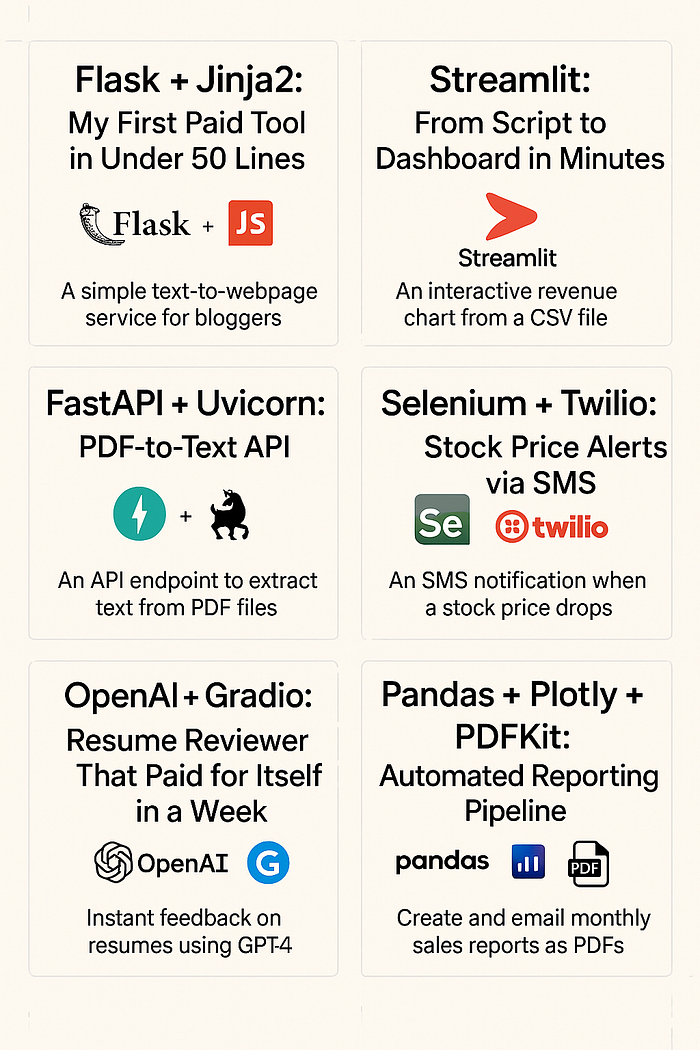Introduction to Python Tools
Python is a powerful and versatile programming language that can be used to create a wide range of tools and applications. In this article, we will explore the concept of creating tiny, single-purpose Python tools that can solve real-world problems effectively while generating passive income.
What are Python Tools?
Python tools are small programs or scripts that can be used to automate tasks, solve problems, or provide useful functionality. They can be created using the Python programming language and can be used in a variety of contexts, such as data analysis, web development, and more.
Benefits of Creating Python Tools
Creating Python tools can have several benefits, including:
- Generating passive income through sales or licensing
- Solving real-world problems and making a positive impact
- Building a portfolio of work and demonstrating programming skills
- Learning new skills and technologies
Examples of Python Tools
There are many examples of Python tools that can be created, including:
- Stock alerts: a tool that sends notifications when a stock reaches a certain price
- Resume reviewer: a tool that reviews and provides feedback on resumes
- Automated reporting pipeline: a tool that automates the process of generating reports
How to Create Python Tools
Creating Python tools requires a combination of programming skills, problem-solving skills, and creativity. Here are the general steps involved in creating a Python tool:
- Identify a problem or need: find a real-world problem or need that can be solved using a Python tool
- Design the tool: determine the functionality and features of the tool
- Write the code: write the Python code to implement the tool
- Test and refine: test the tool and refine it as needed
Sample Code Snippets
Here are some sample code snippets that demonstrate how to create Python tools:
import yfinance as yf
# Stock alert tool
def stock_alert(ticker, price):
stock = yf.Ticker(ticker)
current_price = stock.info['currentPrice']
if current_price >= price:
print(f"Stock {ticker} has reached {price}")
# Resume reviewer tool
def resume_reviewer(resume):
# Implement resume review logic here
pass
# Automated reporting pipeline tool
def automated_reporting_pipeline(data):
# Implement reporting pipeline logic here
passConclusion
Creating Python tools can be a fun and rewarding experience, and can also generate passive income. By identifying real-world problems and needs, designing and writing Python code, and testing and refining the tool, anyone can create a useful and effective Python tool.
FAQs
- Q: What is a Python tool?
A: A Python tool is a small program or script that can be used to automate tasks, solve problems, or provide useful functionality. - Q: How can I create a Python tool?
A: To create a Python tool, identify a problem or need, design the tool, write the Python code, and test and refine the tool. - Q: What are some examples of Python tools?
A: Examples of Python tools include stock alerts, resume reviewers, and automated reporting pipelines. - Q: Can creating Python tools generate passive income?
A: Yes, creating Python tools can generate passive income through sales or licensing.











